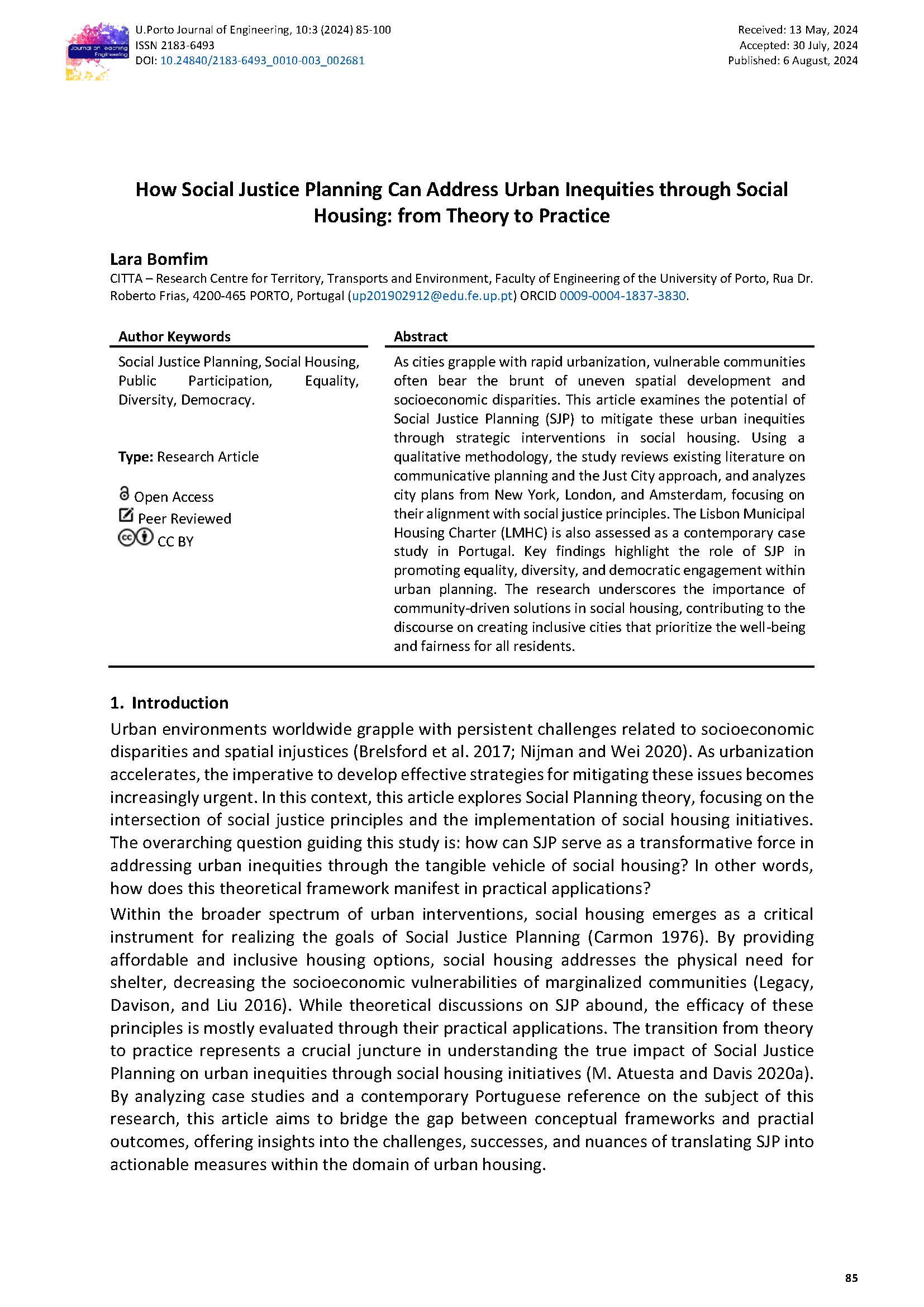How Social Justice Planning Can Address Urban Inequities through Social Housing: from Theory to Practice
Main Article Content
Abstract
As cities face the challenges of rapid urbanization without proper planning, vulnerable communities are disproportionately affected by the uneven spatial configurations and socioeconomic disparities within urban areas. In this context, this article explores the transformative potential of Social Justice Planning (SJP) in addressing persistent urban inequities through strategic interventions in social housing. This paper reviews the literature on communicative planning and the Just City approach, presenting their main topics. It also explores city plans of New York, London, and Amsterdam through social justice principles and analyzes the Lisbon Municipal Housing Charter (LMHC) as a contemporary reference case in Portugal. Thus, this work aims to highlight how SJP can serve as a powerful tool for fostering equality, diversity, and democracy to develop community-driven solutions within the realm of social housing. Ultimately, this research contributes to the ongoing discourse surrounding the creation of cities that prioritize fairness and well-being for all residents.
Downloads
Article Details

This work is licensed under a Creative Commons Attribution 4.0 International License.
Authors who publish with this journal agree to the following terms:
- Authors retain copyright and grant the journal right of first publication with the work simultaneously licensed under a Creative Commons Attribution License that allows others to share the work with an acknowledgement of the work's authorship and initial publication in this journal.
- Authors grant the journal the rights to provide the article in all forms and media so the article can be used on the latest technology even after publication and ensure its long-term preservation.
- Authors are able to enter into separate, additional contractual arrangements for the non-exclusive distribution of the journal's published version of the work (e.g., post it to an institutional repository or publish it in a book), with an acknowledgement of its initial publication in this journal.
- Authors are permitted and encouraged to post their work online (e.g., in institutional repositories or on their website) prior to and during the submission process, as it can lead to productive exchanges, as well as earlier and greater citation of published work (See The Effect of Open Access).

